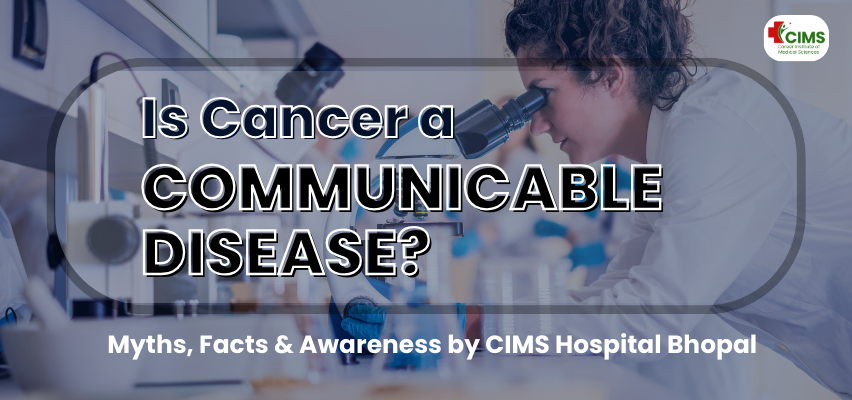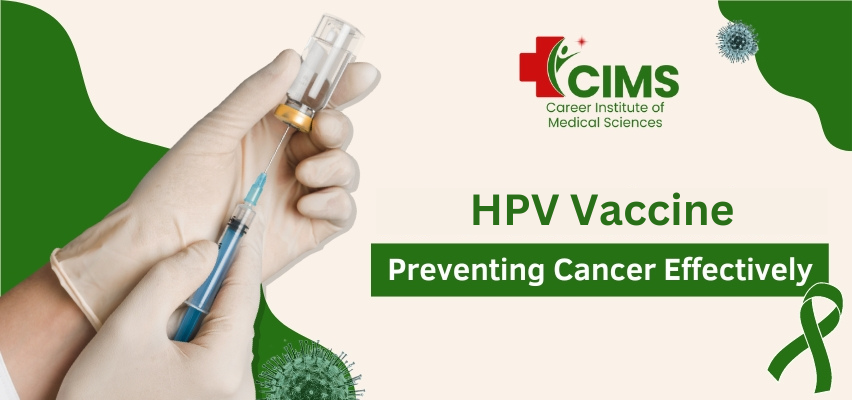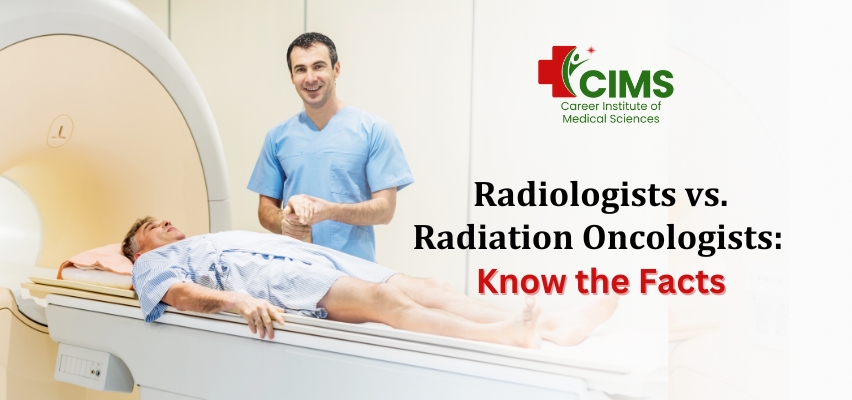Table of Contents
ToggleIs Cancer a Communicable Disease?
When people hear the word ‘cancer’, fear and confusion often follow. One of the most common misconceptions people have: “Is cancer a communicable disease?” The simple answer is No. Cancer is not contagious and cannot spread from one person to another through casual contact, air, food, or water.
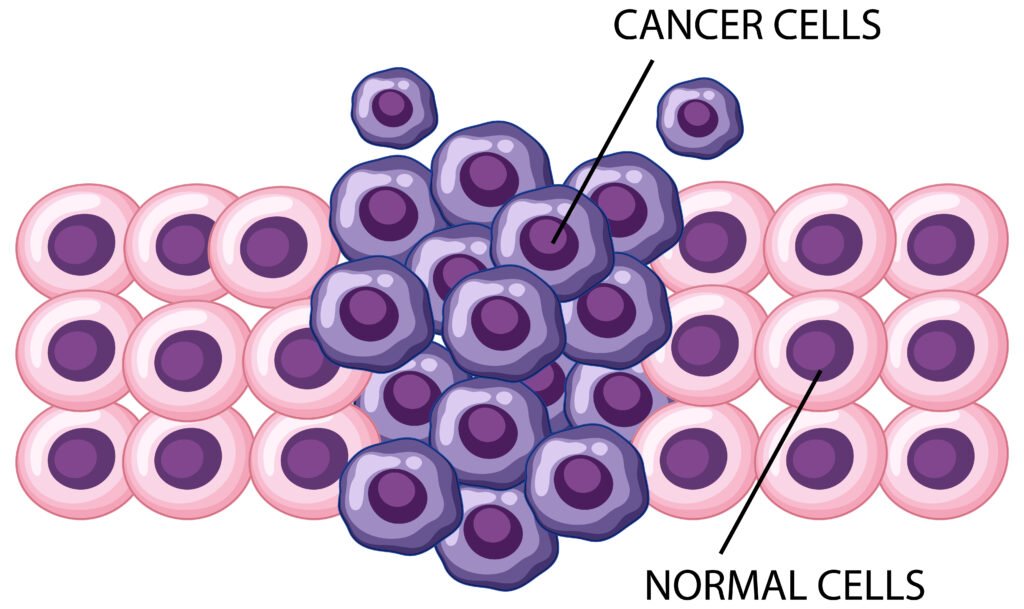
At CIMS Hospital, Bhopal, one of the best cancer hospitals in Bhopal and Central India, our mission is not just treatment but also spreading awareness. Understanding how cancer develops, why it is not communicable, and what the rare exceptions are can reduce stigma and encourage people to support loved ones battling this disease.
How Cancer Develops? Is Cancer a Communicable Disease?
To understand why cancer is not communicable, we must first understand how it develops.
- Cancer begins in the cells: The human body is made of trillions of cells that grow, divide, and eventually die in a controlled way.
- Genetic mutations: Sometimes, cells undergo changes (mutations) in their DNA. These mutations may cause cells to grow uncontrollably and form a lump called a tumor.
- Not an infection: Unlike viruses or bacteria, cancer does not spread through sneezing, coughing, touching, or sharing meals. It develops inside the body due to genetic and environmental factors.
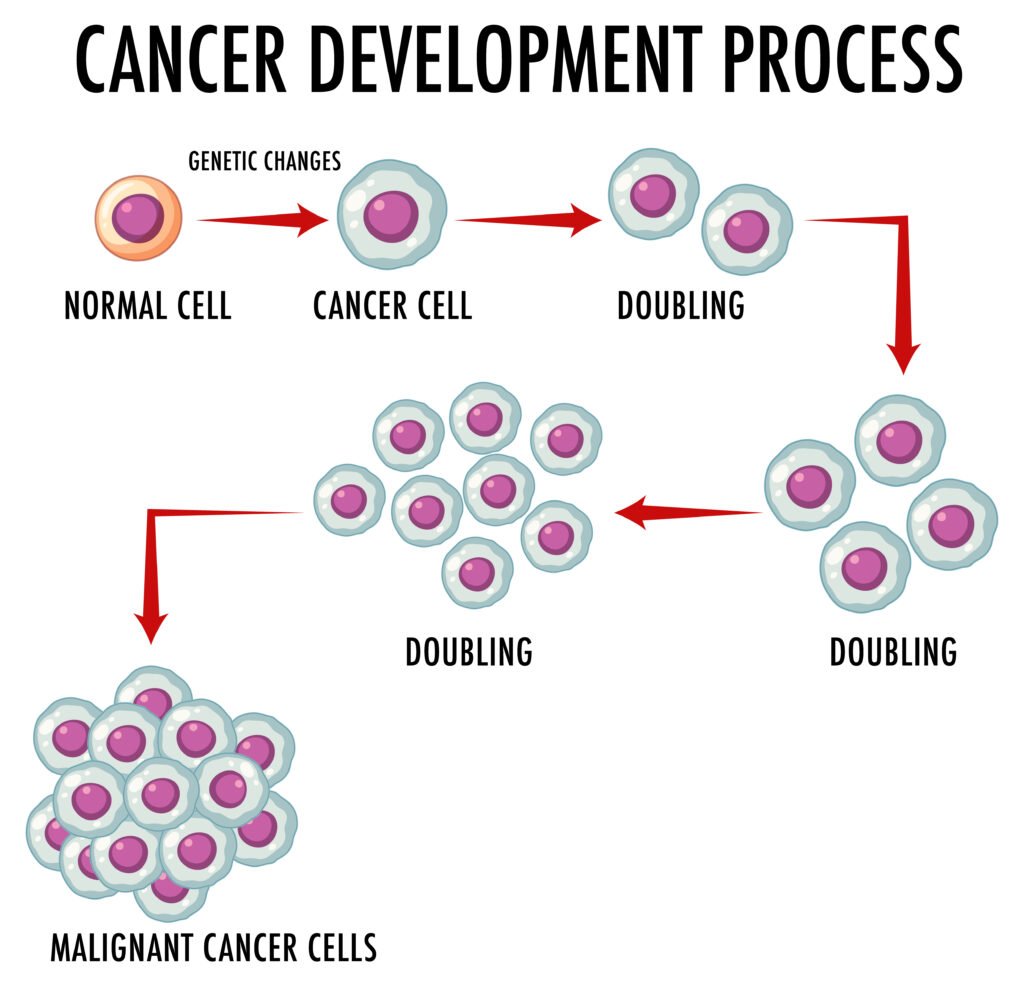
How Is Cancer Not Spread?
Despite common fears, cancer does not spread from person to person like the flu or common cold.
- You cannot catch cancer by touching, hugging, kissing, or sharing food with a cancer patient.
- Cancer does not spread through blood transfusions (as donated blood is carefully screened).
- Living with, caring for, or working around a cancer patient is completely safe.
This is why doctors, nurses, and caregivers can work closely with cancer patients without risk.
Extremely Rare Exceptions
Although cancer is not contagious, there are a few extremely rare medical situations where cancer cells may be transferred.
1. Cancer in Families
Cancer seems to “run in families,” but that doesn’t mean it spreads from one person to another. Instead, the reasons are:
- Shared genes: Families pass on genetic mutations that increase cancer risk (e.g., BRCA1/2 genes in breast cancer).
- Shared lifestyle habits: Diet, smoking, alcohol, and physical inactivity may increase cancer risk.
- Shared environment: Families living together may be exposed to the same cancer-causing agents, such as polluted air, chemicals, or tobacco smoke.
2. Cancer Transfer During Organ Transplant
In very rare cases, a person receiving an organ transplant from a donor who had cancer might develop the disease.
- This risk is extremely low because organs are thoroughly screened before transplantation.
- Organ recipients are given immunosuppressing drugs, which may increase the risk of cancer cells surviving in the body.
3. Cancer Transfer During Pregnancy
When a woman has cancer during pregnancy, it almost never affects the baby.
- Sometimes cancer cells may spread to the placenta (the organ connecting mother and baby).
- However, in the majority of cases, the baby is born healthy and unaffected by the mother’s cancer.
Research Figure – Why Families May Share Cancer Risk
Reason | Explanation | Example |
Shared Genes | Family members inherit mutations linked to cancer | BRCA gene in breast cancer |
Shared Lifestyles | Families often eat similar diets, may smoke, or drink alcohol together | Obesity, lung cancer |
Shared Environment | Exposure to the same pollutants or carcinogens | Living near factories with chemical exposure |
Do People with Cancer Need to Be Around Others? Is Cancer a Communicable Disease?
One of the most harmful myths about cancer is that patients should be avoided. Unfortunately, some families, friends, and co-workers still keep their distance, fearing they might “catch” cancer. This only makes the patient feel isolated and lonely.
The truth is:
- Cancer cannot spread through closeness or affection.
- Emotional support plays a vital role in a patient’s recovery.
- A visit, a call, or even a simple conversation can boost morale.
If someone you know has cancer, don’t step back—step forward. Show them you care.
Why Is It Important to Break the Myth? Is Cancer a Communicable Disease?
Breaking the myth of cancer being communicable is crucial for several reasons:
- Support system: Patients need family and friends to stay strong.
- Early detection: When people know cancer is not contagious, they are more likely to get tested without fear of stigma.
- Better care: Awareness encourages communities to stand together for prevention and treatment.
Cancer Prevention & Cancer Early Detection
Even though cancer is not communicable, it can often be prevented or detected early.
Cancer Prevention Tips
- Avoid tobacco in all forms.
- Eat a balanced diet rich in fruits and vegetables.
- Exercise regularly and maintain a healthy weight.
- Limit alcohol intake.
- Protect yourself from prolonged sun exposure.
- Get vaccinated (e.g., HPV vaccine to prevent cervical cancer).
Cancer Early Detection Strategies
- Regular health check-ups.
- Screening tests like Pap smear, mammogram & colonoscopy are recommended.
- Knowing your family history and getting genetic counseling if needed.
Quick Reference Table: Is Cancer a Communicable Disease?
Question | Answer |
Is cancer a communicable disease? | No, cancer cannot spread from person to person. |
How does cancer develop? | Due to mutations in the body’s cells. |
Can you catch cancer by touching someone? | No, hugs, kisses, and sharing meals are safe. |
Are there rare exceptions? | Yes, in organ transplants and pregnancy (extremely rare). |
Why does cancer run in families? | Shared genes, lifestyle, and environment. |
What should we do for prevention? | Healthy lifestyle, screening, vaccinations. |
Final Thoughts: Is Cancer a Communicable Disease?
So, is cancer a communicable disease? Absolutely not. Cancer is a disease that develops within the body, not one that spreads from person to person. While there are very rare medical exceptions, everyday contact with cancer patients is completely safe.
At CIMS Hospital, Bhopal, we are committed to not only providing world-class cancer care but also to spreading awareness. Patients need medical treatment, emotional strength, and social support. By breaking myths and encouraging open conversations, we can create a society where cancer patients feel supported, not isolated.
Contact Us
For more information or to schedule a consultation.
Call us at 9522982211.
Author: Rishabh Pandey

